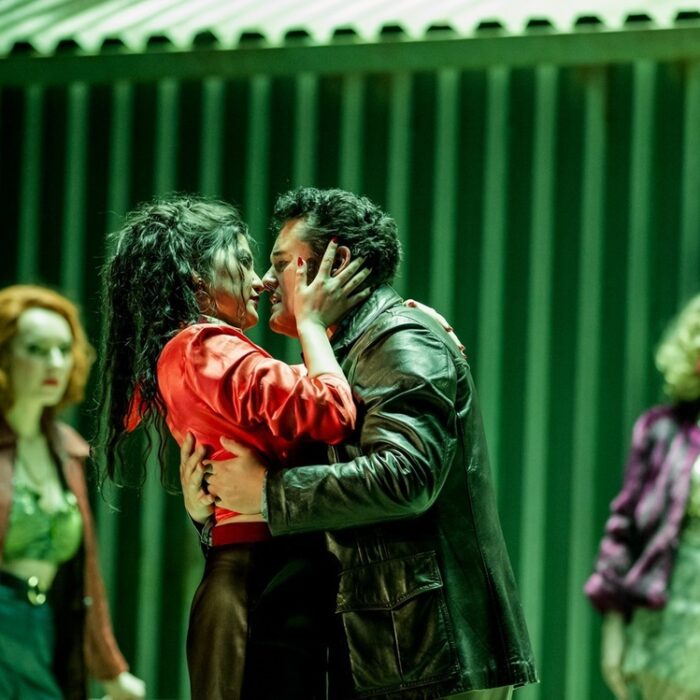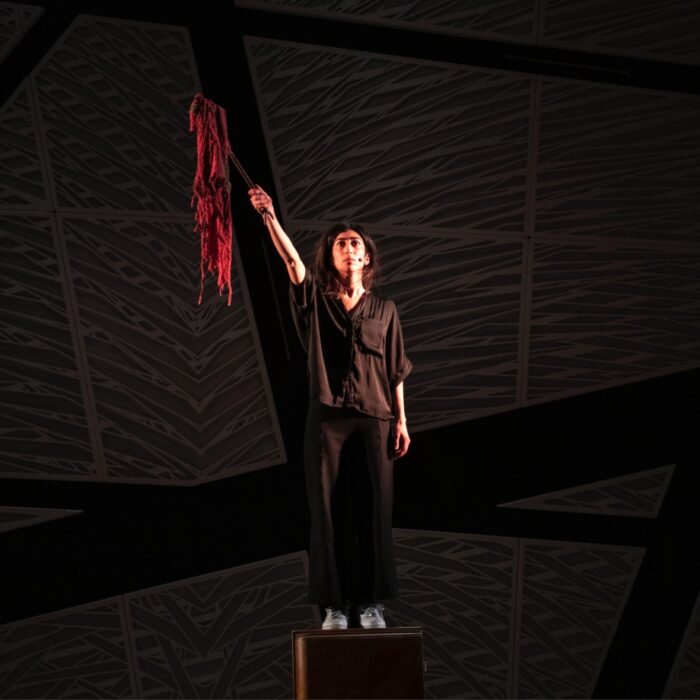
Berkshire Opera Festival 2018 Review: Rigoletto
The Stars Align In Wondrously Sung & Performed Rendition Of Verdi Masterwork
By Matt CostelloI had never gone to the Berkshire Opera Festival. It had a strong reputation, built over a few seasons. And so, on my first visit to see its “Rigoletto,” I expected to enjoy it. Classics like “Rigoletto” — even when not every element is perfect, still, somehow are able to work.
And what happened instead is that I was blown away. The performance was unexpectedly good. I’d be less than honest if I didn’t say it wasn’t a highlight of the weekend.
As mentioned, an opera alike “Rigoletto”, with its string of great arias, its brilliant moments for ensemble singing, duets and that amazing quartet in the last act. It’s truly hard to go wrong.
But in this case, the company somehow managed to stage the piece with singers and singing that made this, well, ‘warhorse’ as exciting as if it premiered yesterday.
Tetelman Strikes Again
Let’s start with the Duke of Mantua.
Jonathan Tetelman, fresh from his last minute performance at Tanglewood’s ”La Bohème” in July – where his Rodolfo was all you could ask for – shined even more here. Looking and acting the part, his voice (at age 28, mind you) promises that this is just the beginning of what may be a great career, and definitely a tenor to pay attention to.
From “Questa O Quella” to the beautiful (yet eerie) “La Donna E Mobile,” his voice grew in power through the opera, never less than thrilling, with cat-like acting as the not-to-be trusted and rakish Duke.
An Object of Sympathy
And our Rigoletto? Sebastian Catana, Romanian born and a regular interpreter of Verdi baritone roles, made the cursed Duke’s jester an object of deep sympathy, showing how Verdi would shape the baritone voice for his parental figures to create such amazing empathy and pathos. And the sound was deep, and so rich in this theater (a 19thCentury classic by the way, with golden gilded walls and velvet seats).
This was a great Rigoletto, no doubt. One doesn’t often wish that an opera was longer. In this case, with this Rigoletto, I certainly did.
A Gifted Soprano
And our Gilda? Like all the major roles in this opera, Verdi gifted the soprano here with some of his most sublime middle-period music. Maria Valdes sang with a bell-like clarity and beauty, more than managing Verdi’s sublime music that seems to have one foot in the world of Bel Canto, and another foreshadowing the dramatic works to come. Her plaintive “Cara Nome” — the voice floating beautifully — was delightful.
Ringing Villains
An excess of riches, no question about it. And that included the somewhat ethical assassin, Sparafucile. Joseph Barron’s rich bass-baritone made his scenes ring with threat and menace (while still sounding gorgeous). And his singing in the Act three quartet helped make that a moment where I wished we could have revived the tradition of bis. Please, repeat!
Especially after adding the husky, sensuous sound of Israeli mezzo-soprano Maya Lahyani who sang a very sensual and seductive “Maddalena”. Vocally and visually, she gave the Duke good reason to not be so terribly faithful (if he ever was inclined that way).
At the end, it almost felt as if the audience didn’t want to stop applauding, or leave.
And it’s also worth mentioning that the supporting singers, from Kalia Kellogg’s’ Countess of Ceprano, the moving Marullo of Nicholas Martorano, and the Count of Monterone Tyler Putnam were all excellent.
Effective Minimalism
One last area to touch upon – staging. One might ask whether it is even worth noting with such great singing, but it certainly can’t be overlooked.
But the staging definitely was on the minimal side. Effective enough to tell the unlikely story (and while not as loopy a tale as “Il Trovatore”, still “Rigoletto” does have its improbabilities). While it worked well enough, I would say that a bit more could be done to stir the imagination with the visuals.
And that is not to say that the performers didn’t act with authority, emotion and meaning. Under the direction of Jonathan Loy, they certainly did. But the cast could have used more than — as in this case — a white light dividing the stage into two areas to serve, for example, as Rigoletto’s chambers and the street outside.
The company’s co-founder, Brian Garman, led the compact orchestra with energy and precision, totally supporting the amazing singing on display. The small chorus of tenors, baritones, and basses also performed their chorus-like warnings with smooth precision.
Again, not sure how the stars (literally) aligned for this performance. Lucky those who got to hear it. And one can only hope that next year’s planned opera, Donizetti’s “Don Pasquale”, will bring further wonders to this classic jewel of a theater on Pittsfield’s Main Street.


